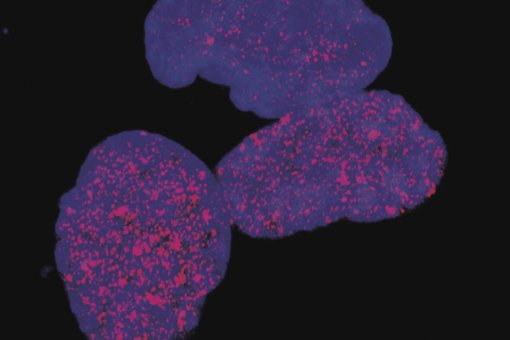Contact

Collaboration between researchers at the Institut de Biotecnologia i de Biomedicina (IBB) of the “Universitat Autònoma de Barcelona”, the Institute for Biocomputation and Physics of Complex Systems in Zaragoza, and IRB Barcelona has led to the publication of the first scientific paper on data collected from the BL13-XALOC beamline of the Alba Synchrotron, located in Cerdanyola de Vallès, a facility that which allows scientists to obtain 3D structures of macromolecular complexes.
The team at IRB Barcelona headed by the research associate Joan Roig, who works in Jens Lüders “Microtubule Organisation” group, in collaboration with David Reverter’s lab at IBB, has resolved two structures that shed light on the regulation of certain proteins involved in correct cell division.
In particular, the researchers have managed to achieve 3D information of the interaction between the protein LC8 and two fragments of Nek9, one of them modified by phosphorylation. Roig has previously demonstrated that LC8 controls the binding of the signaling protein Nek9 with the related molecules Nek6/7. Nek9, Nek 6 and Nek 7 are a set of relevant proteins for the correct separation of chromosomes during cell division and they ensure that each daughter cell receives the appropriate genetic material. The new study provides insight into the regulation of the signaling cascade involved in cell division through this set of proteins. “This work is helping us to understand how the different proteins we study bind and interact and how this affects their regulation and physiological function. This kind of information could be highly relevant in the therapeutic strategies seeking to target Neks”, explains Joan Roig.
Reference article:
Structural analysis of the regulation of the DYNLL/LC8 binding to Nek9 by phosphorylation
Pablo Gallego, Adrian Velazquez-Campoy, Laura Regué, Joan Roig and David Reverter
Journal of Biological Chemistry (2013) doi: 10.1074/jbc.M113.459149 jbc.M113.459149.
Link to news from Alba Synchrotron
IRB Barcelona
El Instituto de Investigación Biomédica (IRB Barcelona) trabaja para conseguir una vida libre de enfermedades. Desarrolla una investigación multidisciplinar de excelencia para curar el cáncer y otras enfermedades vinculadas al envejecimiento. Establece colaboraciones con la industria farmacéutica y los principales hospitales para hacer llegar los resultados de la investigación a la sociedad, a través de la transferencia de tecnología, y realiza diferentes iniciativas de divulgación científica para mantener un diálogo abierto con la ciudadanía. El IRB Barcelona es un centro internacional que acoge alrededor de 400 científicos de más de 30 nacionalidades. Reconocido como Centro de Excelencia Severo Ochoa desde 2011, es un centro CERCA y miembro del Barcelona Institute of Science and Technology (BIST).


